
Table of Contents
- Why Reputation Management Matters in Insurance
- What Is Insurance Reputation Management?
- 5 Core Strategies for Insurance Reputation Management
3.1. Create a Strong and Customer-Friendly Website
3.2. Cater Actionable and Value-Added Content for Your Audience
3.3. Use Paid Campaigns to Grow Your Leads
3.4. Connect With Prospects and Policyholders Through Social Media
3.5. Establish Your Agency’s Values Through Human Branding - Key SEO Practices for Strengthening Your Insurance Agency’s Reputation
- AI Search & Google’s AI Overview: The New Frontier in Reputation Management
- 3 Core Elements of Insurance Reputation Management
6.1. Review Monitoring
6.2. Maintain a Consistent Online Presence
6.3. Insurance Reputation Crisis Management - Keep Your Reputation Soaring With PathwayPort
Why Reputation Management Matters in Insurance
Think about the last time you chose not to do business with a company because of something negative you heard. Maybe it was a restaurant with poor reviews or a brand that faced public backlash. Chances are, you didn’t take the risk—and you’re not alone. Many businesses have seen their doors close permanently simply because they let a bad reputation grow unchecked.
In today’s digital-first world, public perception is everything—and insurance businesses are no exception.
Reputation management isn’t just a marketing buzzword; it’s a vital part of your insurance agency’s and brokerage’s long-term success. One bad review or unresolved complaint can cost you potential clients, while a strong, consistent online presence can build trust and convert prospects into loyal policyholders.
That’s where insurance reputation management comes in. It’s not just about looking good online—it’s about protecting your brand and proactively shaping how the world sees you. From monitoring online reviews and managing social media to optimizing your SEO so clients find trustworthy content about you first, a strategic reputation management plan is essential. Reputation about quality of your services, and clients satisfaction is what creates positive word-of-mouth and brand recognition.
Every client who chooses your agency does so because they trust your brand. They’ve either heard good things or found nothing negative—both are wins. The stronger your reputation, the more likely customers are to stay, return, and even refer others.
In this guide, we’ll explore five proven strategies for effective insurance reputation management—plus the tools, techniques, and mindset you need to win in today’s customer-driven marketplace.
What Is Insurance Reputation Management?
Reputation management can be best described as the effort made to influence or control how people view your brand or presence online. In a nutshell, it’s the act of creating and maintaining a particular public image that might be desirable for you or your brand.
Unlike in the age of television or radio, with social media and the internet, it’s much easier to see what other people think about a brand, and most people are influenced by what other people say, or post. This means that online reputation management to a large extent involves controlling the public narrative about your insurance agency.
While you can’t tell people what to think, you can control what they see and so, much of reputation management will happen online with regard to the content that people see about you. Reputation management is essential for your business’s survival and greatly affects marketing and sales as public backlash is something you want to avoid at all costs.
7 Strategies To Manage Your Insurance Reputation Smartly
While it might seem like there’s not much you can do at first to manage public perception, the truth is there’s probably more that can be done than you can possibly have time for.
This is one of the deceptive truths of reputation management. Almost everything matters and makes some kind of difference however for the sake of getting started, let’s begin with the basics – the most important strategies – which serve as the foundation for online reputation management, over which additional strategies can be layered to build the ideal plan for your agency.
1. Create a Strong and Customer-Friendly Website
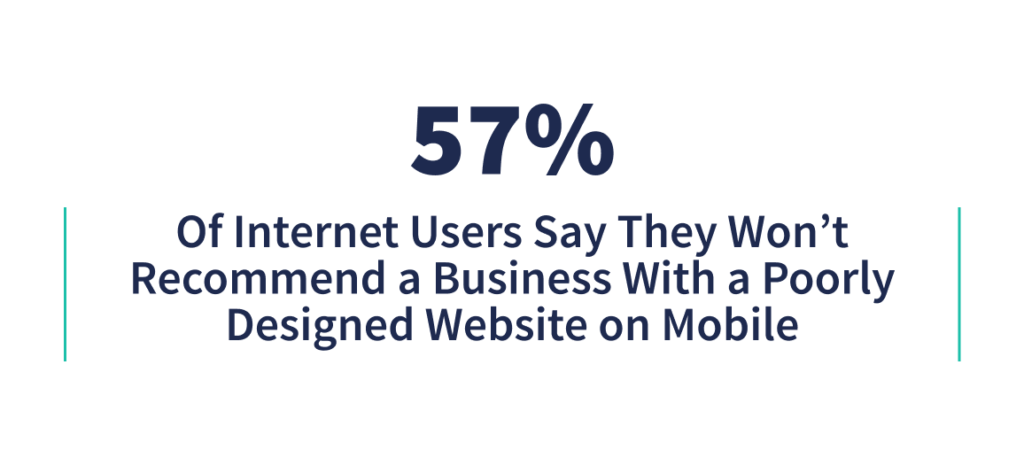
Your reputation is based on what your audience sees about you online and one of the first things they will see is your website. Fortunately, your website is something that’s completely within your control and that makes it the most powerful chess piece you have in the game of online reputation management.
Your website needs to be strong and customer-friendly because when someone googles your insurance agency and goes to your website, they’re going to start forming an opinion about you from the minute they land on your home page. First impressions matter and so it’s crucial that you nail your website.
The first thing to make sure of is that your site is responsive. Since over half of all online searches come from mobile devices, it is imperative that users have a seamless, user-friendly experience. This means that irrespective of whether they’re browsing from mobile, tablet, or desktop devices, their user experience shouldn’t be anything less than flawless. This can only be achieved through a responsive website.
Since most customers initially go through your website just to get a rough idea of what they’re dealing with, it’s important to make sure that your content is easy to skim. No one wants to be stuck reading word for word and so make use of bullet points and lists to ensure that customers can easily skim through your content.
Also, make sure to include search functionality to give users the ability to quickly find what they’re looking for without long time-consuming searches through your website that can leave customers feeling frustrated. Also, make sure to showcase your products where they’re most likely to be seen which is on the main homepage and not hidden away somewhere on your site.
Finally, make sure you’re easy to contact so that customers don’t have to hunt to find your contact details and can easily shoot you an email or call your agency to help resolve any unanswered queries they might have about your agency. You can even offer a knowledge base or self-service kiosk like Pathway’s customer service kiosk so that customers can help themselves by quickly resolving any issues they have right on your website itself.
Make your website secure, user-friendly, and easy to navigate. Include HTTPS, as well as ‘About Us’, ‘Contact Us’, ‘Terms’, and ‘Privacy’ sections on your website.
2. Cater Actionable and Value-Added Content for Your Audience
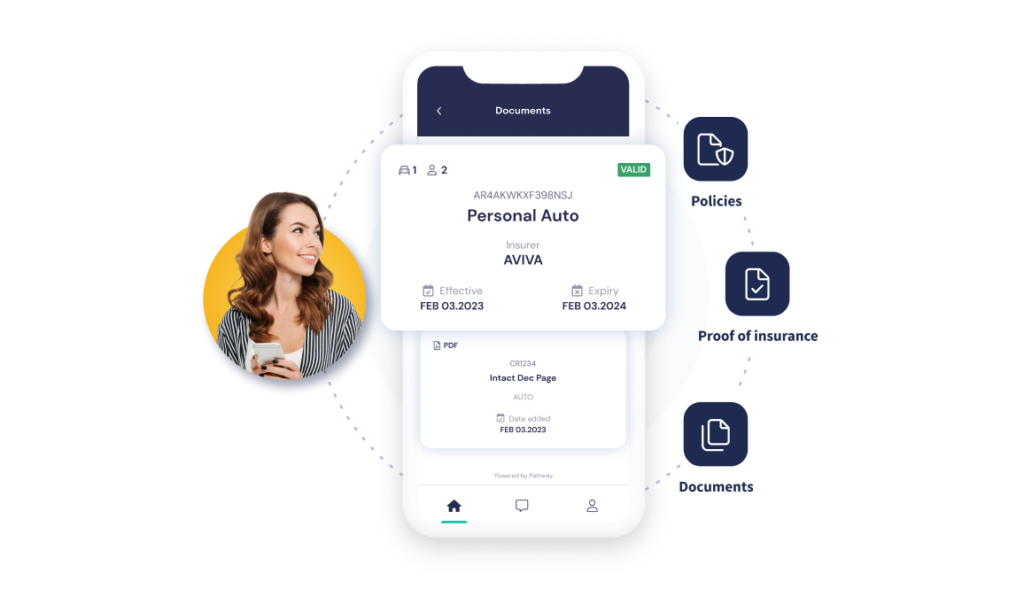
Whenever someone from your audience opens up an article or clicks on a video you put out, they’re doing it with a purpose in mind. This purpose is either to be entertained or to be informed. What they aren’t opening your content for to waste their time, so if that’s what your content does then it won’t be long before word gets around on the internet and you quickly become known as one of those brands that produce useless, valueless content.
Reputations and labels tend to stick online so this is something you want to avoid at all costs. Being a brand that creates meaningless content not only annoys your audience but can also decrease your engagement and lose followers online which limits your reach and cause you to lose both potential and existing customers. Either way, the results are bad and once you’re in this spiral, it’s not always easy to break out.
Fortunately, the opposite is also true. Brands that specifically craft detailed, nuanced content to cater to the needs of their audience find themselves on the receiving end of praise often even from people who aren’t customers yet. This can be a significant boost to their reach and engagement online as people are quick to jump on to trends, especially on social media and this can work wonders for your brand.
There’s also the added advantage that very well-crafted content often earns you followers that will follow even if they haven’t heard of your brand yet. However, when they require the service you provide at a later point in time, your agency or organization will be the first one that pops into their head. This can add a massive boost to revenue and can make a world of a difference to your bottom line.
A great way to ask yourself if you’re doing it right is to ask customers what it is they have always wondered or wanted to know about your brand. Or ask them what they feel they don’t understand completely and require more detailed explanations about. Then create content to fill those exciting holes and people will start to notice.
After all, if your brand doesn’t do it quickly, chances are a competitor will notice it and take advantage of it first by putting out content before you.
3. Use Paid Campaigns to Grow Your Leads
Organic lead generation may work but it definitely isn’t something that happens overnight. Often it takes quite a while to get everything like SEO, social media, and your blog going and even longer to fine-tune things and see what’s making a difference and what isn’t.
Fortunately paid media solves this issue and can be used to quickly promote your business. Unlike earned media and owned media, paid media will require payment before you can even begin to use it. However, when used in tandem with organic methods for lead generation it can yield incredible results.
Some of the top types of paid media that can be used for lead generation are:
- PPC Advertising
PPC stands for pay-per-click and is a model of advertising where you have to pay a fee every time someone clicks on your ad. While you can earn visits to your website organically, PPC is a way to buy those visits and usually more of them than you could normally achieve through organic methods.
- Paid Social Media Ads
Social media today allows for advertisements that can be strategically placed, targeted, and have a higher chance of converting than almost any other kind of advertising. This makes it one of the most efficient forms of lead generation as paid ads can be shown to people who match your ideal customer persona closely, boosting your chances of conversion.
- Search Engine Marketing
Search Engine Marketing is another great form of paid media and usually includes PPC forms of advertising. In search engine marketing you pay to have your advertisement seen first or at least above all the organic search results. This is like a shortcut to being seen before the competition and is a very common type of paid media.
- Podcast Ads
Advertising on podcasts is gradually becoming more and more popular as a form of paid media. Most podcasts have the option of a recorded ad that plays in the beginning before the episode or an ad mid-way through the podcast. You can advertise on podcast genres that specifically cater to the kind of audience that is most likely to request your services. For example, if you’re selling health insurance you can always advertise on podcasts about nutrition, diet, exercise, or health.
4. Connect With Prospects and Policyholders Through Social Media
Social media can be an incredibly powerful tool in the process of connecting and closing customers for your insurance agency.
First, identify which channels are used most commonly by your target market. For example, if you’re selling travel insurance you might find plenty of people passionate about traveling on Instagram and Facebook, but not so much on LinkedIn.
Then, you can begin creating a presence and engaging in meaningful discussions on your platform. This could be as simple as hosting a live stream or putting up a poll to generate a discussion around a given topic. You can also generate engagement by replying to comments under your posts and on related posts from other accounts.
Be careful not to come off as pushy or ‘salesy.’ Remember that you’re trying to build credibility and position yourself as an authority, not try and sell directly as you could end up driving away customers and hurt your brand image. Want the latest updates? Follow PathwayPort on LinkedIn and YouTube.
Think about the format of your posts and what’s driving engagement. Nowadays, all platforms are prioritizing videos—especially short-form content featuring real people. While AI is a great tool for creating designs, adding a personal touch will help build stronger brand recognition. Creating UGC (User-Generated Content) can help you engage directly with your audience and grow your brand organically at a fast pace. Focus on creativity and uniqueness, and consider what your target audience truly demands. Also, take into account the unique nature of each platform and its algorithm to yield the best results.
5. Establish Your Agency’s Values and Morals Through Human Branding
If your agency wants to truly connect with the customer, it needs to be seen as human by your customers. This means it needs to be viewed as an entity with morals and values that stands for what it believes in.
Your brand needs to talk the way a person does and the content you put out as well as consistently across social media handles. You need to ensure that it stays consistent with the statements it makes publicly and your agency’s actions, in business and relationships.
By creating and maintaining a consistent image that’s human, familiar, and relatable your brand will seem easier to connect with and more like a person which is what consumers want to see in the brands they associate with. While this may sound strange, even though your agency is composed of and operated by multiple people, it is quite easy to present a single consistent brand image as long as you have a firm set of branding guidelines and regulations. Check out our comprehensive guide on “How to unlock personalize customer experience with insurance marketing automation”.
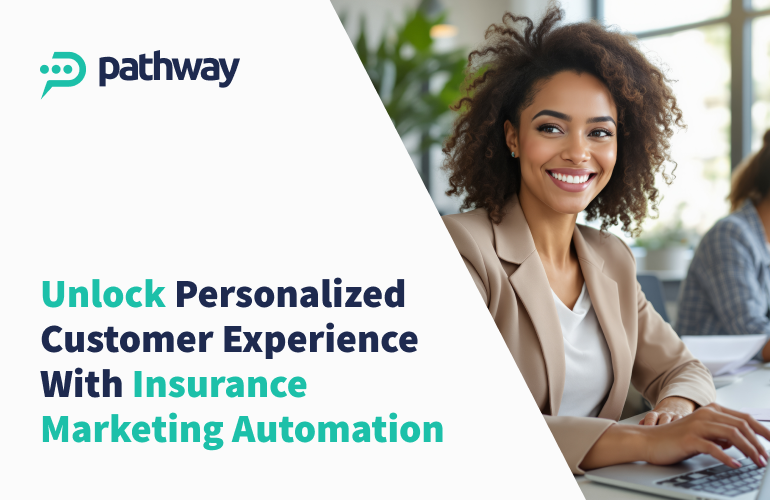
Once you’ve figured out what your brand stands for and what sort of personality you would like it to have, the rest boils down to being consistent and making sure you eliminate any discrepancies to ensure that your human brand is always in line with the morals and values it believes in. Remember that consistency over time is what builds reputation.
6. Key SEO Practices for Strengthening Your Insurance Agency’s Reputation:
Strategic Keyword Optimization
Use targeted keywords throughout your website and blog—terms your audience is searching for (e.g., “affordable auto insurance,” “best health coverage for families”). This helps ensure the most relevant and positive pages appear first when someone looks up your agency.
Local SEO
Ensure your agency shows up in local search results—especially for phrases like “insurance agency near me” or “local home insurance.” Keep your business listings (Google, Bing, Yelp, etc.) accurate, complete, and consistent across all platforms. Reviews, NAP details (Name, Address, Phone), and business categories all impact how you’re perceived and ranked.Keep your reviews up to date, respond to them promptly, and encourage your clients to leave new reviews.
Reputation-Boosting Content Creation
Publish regular, helpful content that addresses common insurance questions, claims processes, coverage types, and more. Blog posts, FAQs, and client education guides not only showcase your expertise but also push down less favorable content in search results.
7. AI Search & Google’s AI Overview: The New Frontier in Insurance Reputation Management
As search technology evolves, artificial intelligence is reshaping how consumers find and interact with information online. For insurance agencies and brokerages, this shift presents both opportunities and risks—especially when it comes to your digital reputation.
What Is AI Search and Why Does It Matter?
AI-powered search engines like Google’s Search Generative Experience (SGE) and emerging AI agents (e.g., ChatGPT, Perplexity, or Gemini) are designed to provide quick, synthesized answers based on content across the web—not just a list of blue links. These systems summarize information in real time and often prioritize credibility, consistency, and recency. A popular search trend today is zero-click content.
That means how your agency is mentioned and represented online now directly influences what AI presents to users—even if they don’t click through to your website.
Bottom Line: AI Is Rewriting the Rules of Reputation
In this new era of AI-powered discovery, traditional SEO isn’t enough. Your insurance agency and brokerage must optimize for how machines understand, summarize, and share your brand with consumers. AI favors reviews and testimonials, especially quotes from reputable websites, companies, and users. That’s why Google reviews remain very important. PathwayPort enables you to include surveys and questionnaires with NPS scores in your emails, helping you collect more Google reviews, improve client engagement, and reduce client churn.
To protect and promote your reputation, make sure:
- Your content is accurate, trusted, and consistent.
- You’re active on high-authority platforms.
- Your reviews and testimonials are fresh and visible.
- Your site follows technical SEO best practices for AI-readability.
AI is rapidly becoming your first impression—make sure it’s a great one.
Keep Your Reputation Soaring With PathwayPort!
By now, you should have a crystal clear understanding of not only how important it is to build a reputation but also how easily it is to have it destroyed and the need for reputation management that comes along with this.
Fortunately, there are systems already designed and put in place to help with reputation management. Using Pathway’s self-service kiosk can help customers by serving them the solutions they need, but ensuring that you agree with it first is a great way to control the information that customers will find and thereby control your reputation.
Rome was not built in a day and neither is a solid reputation. It takes time, effort, and consistency and the rewards will only be reaped much later however an investment in managing your reputation online can be one of the best things you could possibly do for your insurance agency so don’t wait to get started.
Trust the process and above all remember that while you may not see the results immediately when you do it’ll be worth the while.
3 Core Elements of Insurance Reputation Management
Effective reputation management in the insurance industry hinges on three essential components: review monitoring, social media engagement, and search engine optimization (SEO). Together, these elements shape how prospects and policyholders perceive your agency in the digital world.
1. Review Monitoring: The Foundation of Reputation Control
Staying on top of client reviews is critical. Review monitoring involves actively tracking feedback across platforms like Google, Yelp, Facebook, and niche insurance directories.
Why It Matters:
- Real-Time Response: Instant alerts enable you to address concerns quickly before they escalate into bigger issues.
- Customer Insights: Reviews highlight what your agency is doing well and pinpoint areas for improvement.
- Narrative Management: Timely, thoughtful responses show your commitment to customer satisfaction and help you shape public perception.
2. Maintain Consistent On-line Presence
Establish Your Digital Footprint:
Ensure your insurance agency is listed and active on all major platforms, including LinkedIn, Facebook, Twitter (X), Google Business Profile, and key review sites like Yelp, Trustpilot, etc. This allows you to control your brand’s narrative and ensures potential clients find accurate, up-to-date information about your services.
Maintain and Update Regularly:
Consistently update your social media profiles and website with fresh content, news, and service updates. Regular activity not only boosts engagement but also signals credibility and relevance to both clients and search engines—crucial elements for building a strong online reputation in the insurance industry.
3. Insurance Reputation Crisis Management
One of the most important things is knowing how to respond when things don’t go as planned. Clear communication during tough times shows clients that your company cares and helps protect your reputation.
Plan Ahead:
Create a clear crisis response plan with communication guidelines and key messaging.
Stay Calm & Honest:
Be transparent, apologize when needed, and clearly share how you’re resolving the issue.
Reflect & Improve:
Review what happened and update your strategy to avoid future issues.
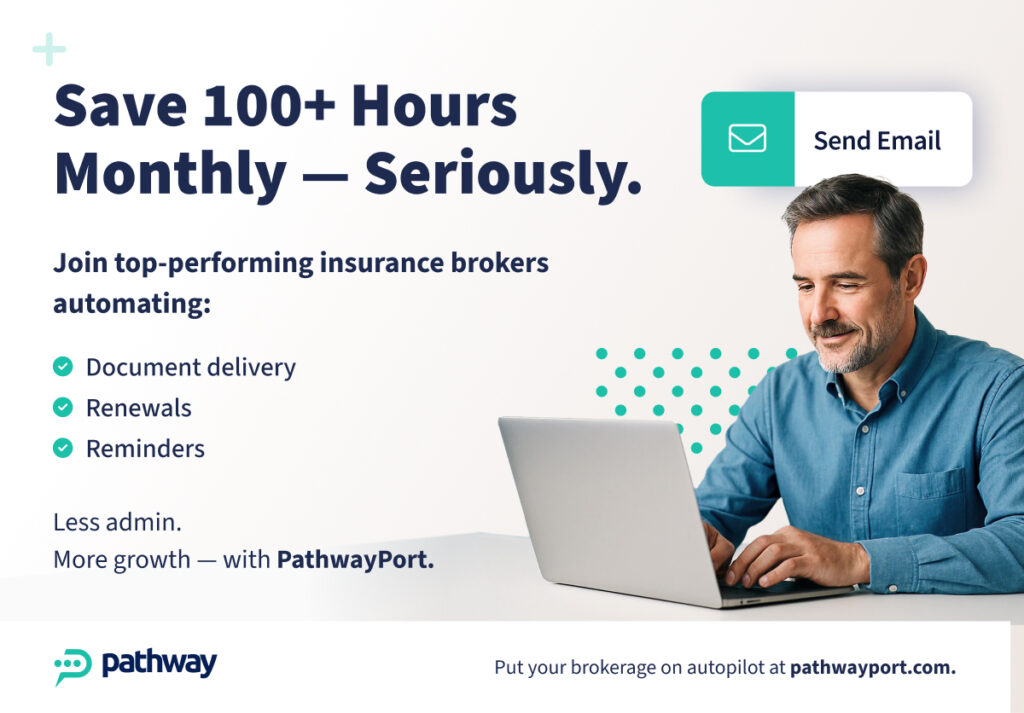
FAQs
1. Why Is Reputation Management Important for Insurance Agencies?
In the digital age, most people research insurance providers online before choosing one. A single bad review or outdated listing can drive potential clients away. A strong online reputation helps build trust, improve retention, and attract new customers through positive word-of-mouth and search visibility.
2. How Can I Improve My Insurance Agency’s Reputation Online?
Start by:
- Creating a professional, mobile-friendly website
- Publishing helpful, informative content
- Monitoring and responding to reviews
- Engaging on social media
- Using tools like PathwayPort to gather client feedback and reviews
3. What Role Do Reviews Play in Insurance Reputation Management?
Reviews are a cornerstone of trust in the insurance industry. Positive reviews increase credibility, while negative ones—if ignored—can damage your brand. Actively responding to and encouraging reviews shows your agency values customer feedback.
4. What Platforms Should I Focus On for Managing My Agency’s Online Presence?
Key platforms include:
- Google Business Profile
- Facebook, LinkedIn, and Twitter (X)
- Yelp and Trustpilot
- Industry-specific directories
Consistent activity across these sites helps reinforce a positive digital footprint.
5. Can AI Search Tools Like Google SGE Affect My Insurance Brand Reputation?
Yes. AI-powered search (like Google’s Search Generative Experience) summarizes your agency’s online presence and shows it directly in results. If your content is credible, current, and consistent, AI tools will present your agency favorably—even without users clicking through.
6. How PathwayPort Can Enhance Your Insurance Agency’s Reputation Management
PathwayPort helps you collect client feedback using surveys and NPS scores embedded in emails. It also helps automate review requests, engage customers, and reduce churn—all key elements for building and maintaining a strong online reputation.
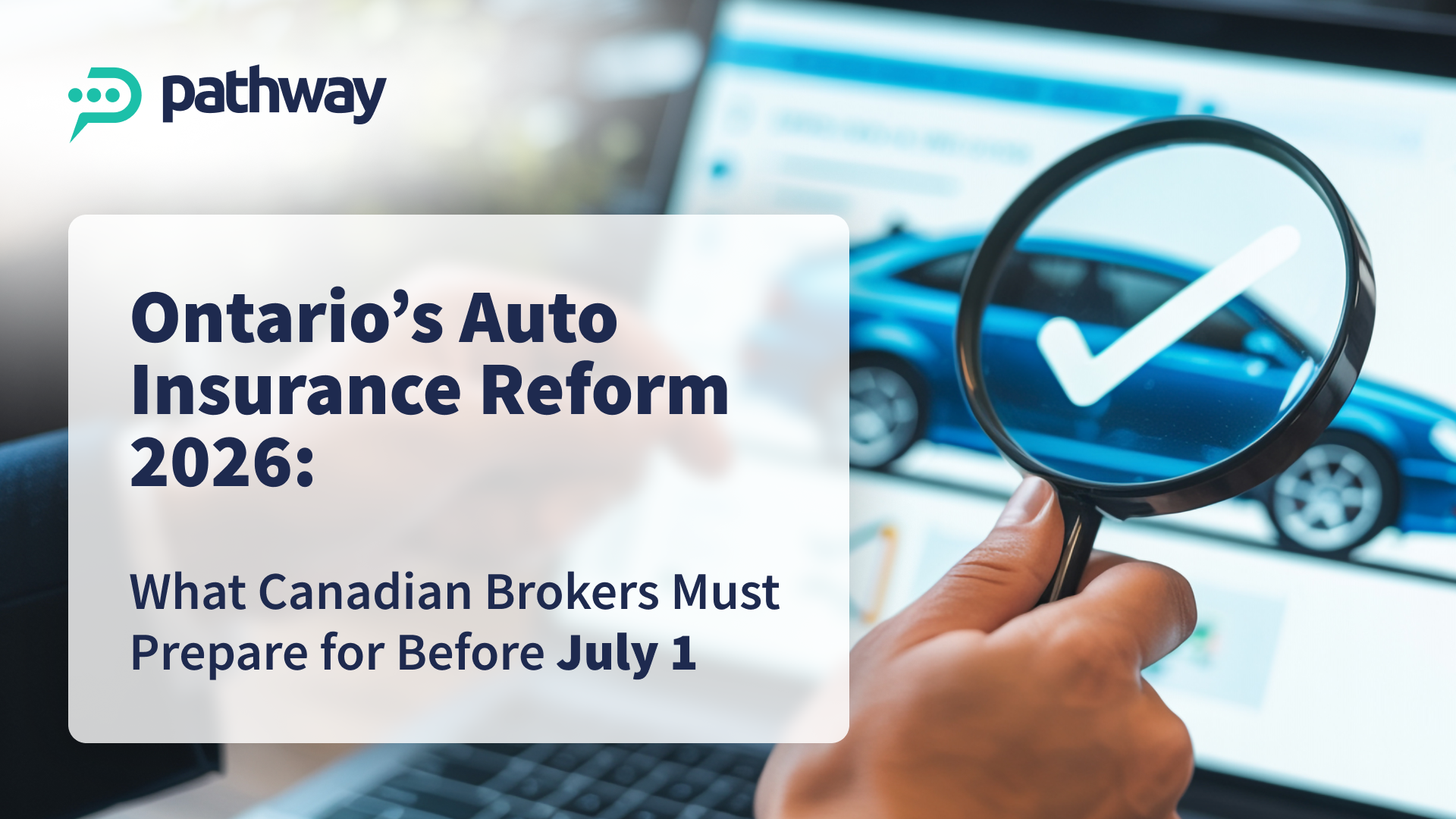

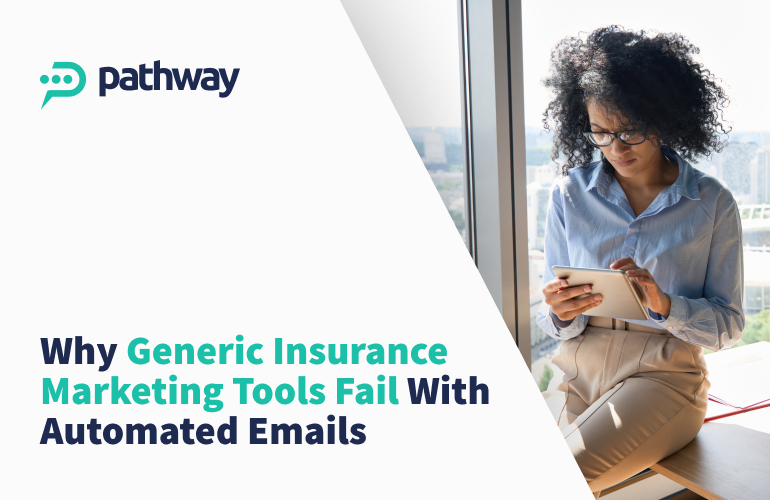
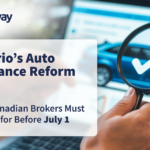

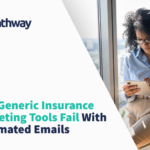
Leave a Comment